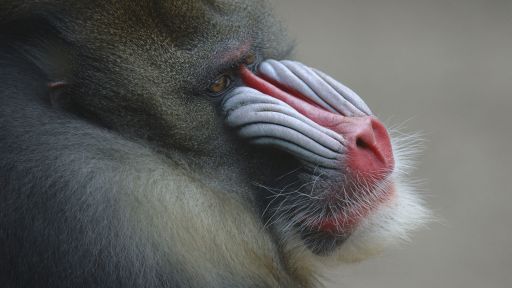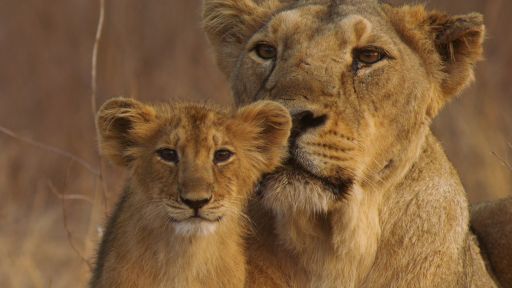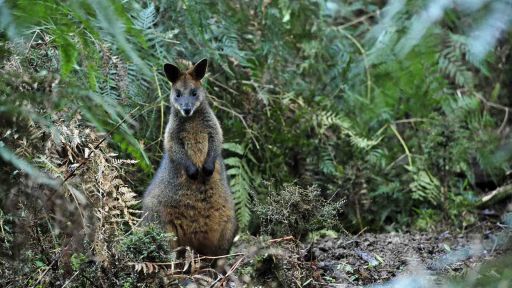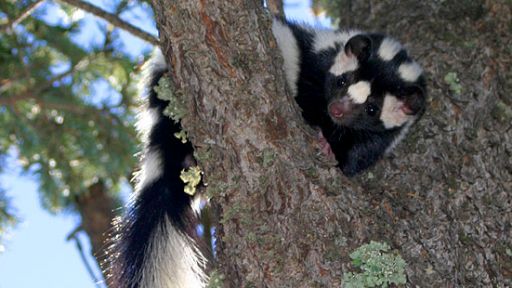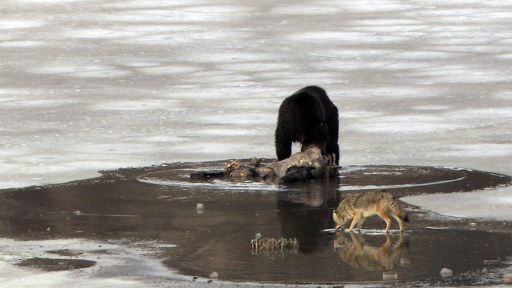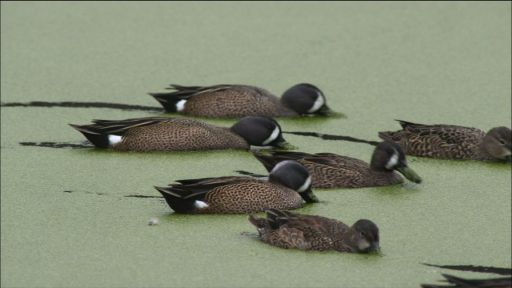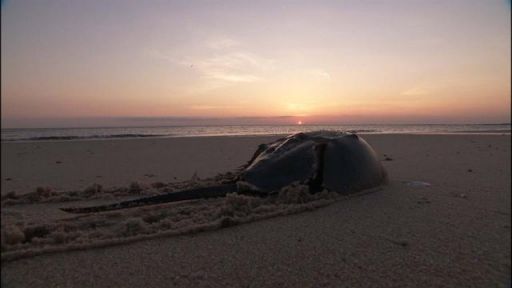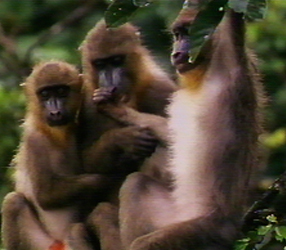 Scientific researchers are not the only people who have had trouble moving through the rainforest. Bernard Walton, a BBC producer, spent many months trekking through Gabon while making Mask of the Mandrill. “It can be quite horrendous, especially when it is raining a lot,” Walton says of his travels in the rainforest. “The roads are very difficult and the terrain is very difficult. Lots of long journeys along bumpy roads. It was quite exhausting just getting from one place to another. It’s certainly an area you have to adapt to.” Even the wildlife itself could prove exhausting: “When we were filming the hammerhead bats, we discovered that they make a terrible noise. We couldn’t get any sleep,” he remembers.
Scientific researchers are not the only people who have had trouble moving through the rainforest. Bernard Walton, a BBC producer, spent many months trekking through Gabon while making Mask of the Mandrill. “It can be quite horrendous, especially when it is raining a lot,” Walton says of his travels in the rainforest. “The roads are very difficult and the terrain is very difficult. Lots of long journeys along bumpy roads. It was quite exhausting just getting from one place to another. It’s certainly an area you have to adapt to.” Even the wildlife itself could prove exhausting: “When we were filming the hammerhead bats, we discovered that they make a terrible noise. We couldn’t get any sleep,” he remembers.
Walton filmed in Gabon over the course of an entire year, staying in huts or houses, sometimes camping out. “We spent a lot of time going into the forest to find the mandrills,” he says. The troop featured in the film numbers about 80 animals, but Walton also wanted to capture on film the larger troops, which can number as many as 700 animals. “We saw them very briefly, but were never able to film them,” he regrets.
Still, it was all well worth the trouble, says Walton. “Getting that close to a primate that is so secretive and so difficult to film is one of the most amazing experiences, despite the difficulties. At the end of the day, when you’ve filmed these extraordinary creatures, it gives you a sense of wonder about just how many secrets there are out there in the forests and remote areas that we never even think of.
“It really touches you deep down in your soul. You feel that you’ve entered a world that is special. It might sound a bit corny, but it is absolutely true that you feel you have been privileged to see that world. And you do wonder whether something like that will stay the way you’ve seen it. You hope that we as humans will be able to safeguard it in the end. You feel a great responsibility for that.”


